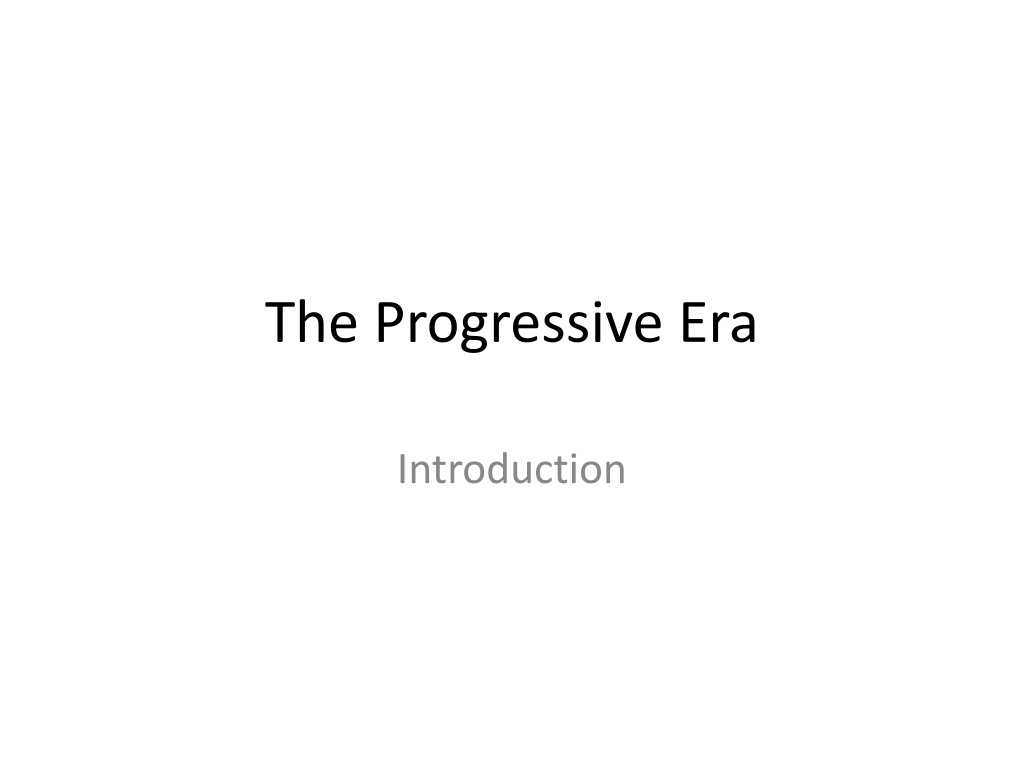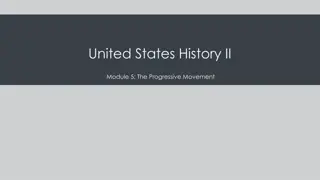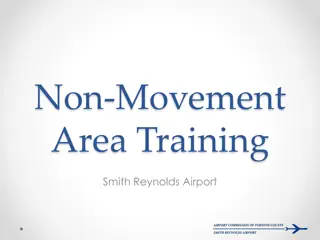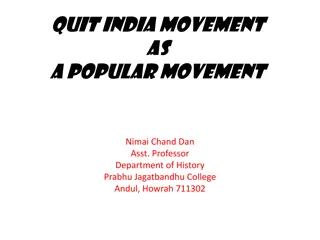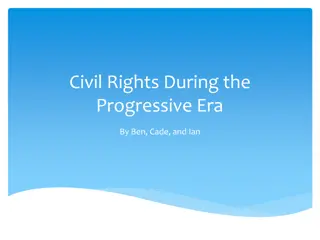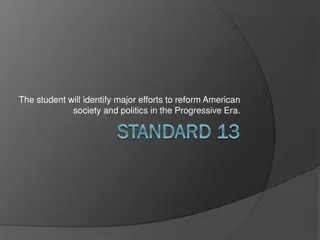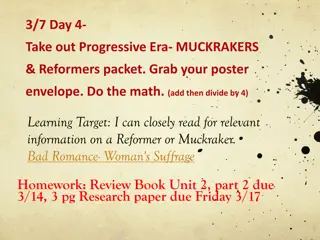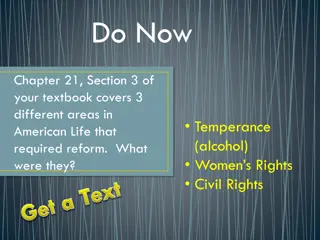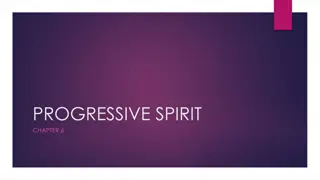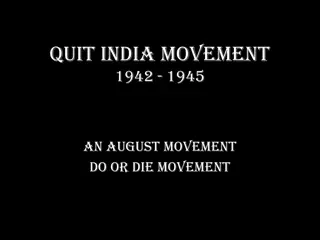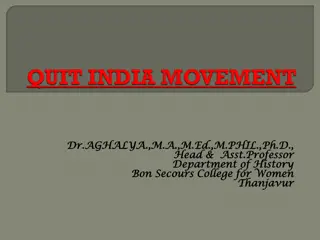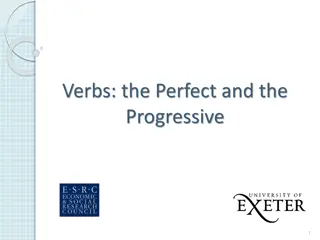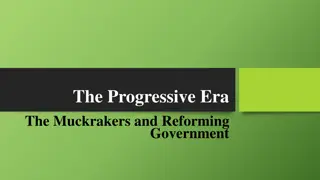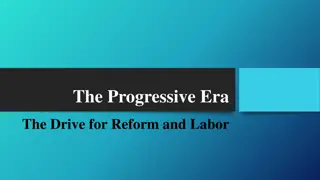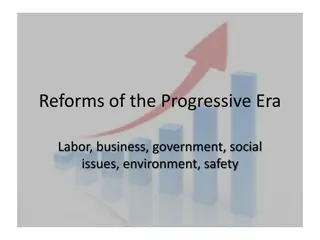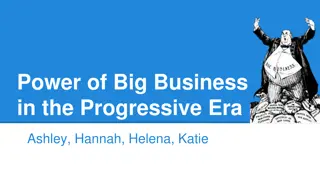Understanding the Progressive Era: Origins, Movement, and Goals
The Progressive Era in late 19th century America was marked by significant political, economic, and social reforms. Originating from the need to address injustices and restore economic opportunities, the Progressive Movement aimed to create lasting changes in society. With goals including protecting social welfare, promoting moral improvement, initiating economic reform, and fostering efficiency, progressives worked towards a better future. Key figures like Florence Kelley and movements like Prohibition played crucial roles in shaping this transformative period.
Uploaded on Oct 03, 2024 | 0 Views
Download Presentation

Please find below an Image/Link to download the presentation.
The content on the website is provided AS IS for your information and personal use only. It may not be sold, licensed, or shared on other websites without obtaining consent from the author. Download presentation by click this link. If you encounter any issues during the download, it is possible that the publisher has removed the file from their server.
E N D
Presentation Transcript
The Progressive Era Introduction
Origins of Progressivism Main Idea: Political, economic, and social change in the late 19th century led to broad progressive reforms. Why it Matters Now: Progressive reforms in areas such as labor and voting rights reinforced democratic principles that continue to the present day.
Progressive Movement Definition: Reform efforts that aimed to restore economic opportunities and correct injustices in American life. Journalists and writers exposed unsafe working conditions Intellectuals questioned the role of large corporations (businesses) Politicians tried to change the laws to help people and society
Four Goals of Progressivism Protect social welfare Promote moral improvement Create economic reform Foster efficiency
Protect Social Welfare Followers of Social Gospel and their work, such as settlement houses continued Groups formed that are still active today Young Men s Christian Association (YMCA) opened libraries and swimming pools Salvation Army fed and educated people Others took more active role for change (activists) Florence Kelley advocate or women and children Worked to pass and enforce laws to prohibit child labor and improve working conditions
Promote Moral Improvement Thought that the poor could improve their lives by improving personal behavior Most important: Prohibition Prohibition (definition): Outlaw manufacture and sale of alcohol Prohibitionists believed alcohol was cause of problems of the poor Women s Christian Temperance Union (WCTU) was largest women s group in the country Not limited to prohibition also worked for women s suffrage
Carrie Nation Most well-known Walked into saloons and smashed alcohol with her hatchet
Economic Reform Many progressives questioned whether capitalism benefited all Americans and not just those who owned large businesses. Eugene V. Debs Founded Socialist Party of America Thought workers should own means of production Improving efficiency was proposed fewer workers could do more Henry Ford developed idea of assembly line
Muckrakers Journalists and writers who exposed the corrupt side of business and government Wrote in magazines and books Most famous: The Jungle by Upton Sinclair Exposed how rotten meat sold to consumers Exposed dangerous and unsanitary conditions
Government Reform Many cities abolished mayoral system Cities run by professionals Appointed commissioners or city manager Progressives Fought to regulate railroads, mines, and other large companies Robert M. LaFollette was most well known Governor of Wisconsin and U.S. Senator
Election Reforms Initiative a law proposed by the people rather then a legislature Referendum Voters decide whether or not a law will be passed Recall Voters decide whether or not a person will stay in office 17thAmendment People elect their senators Before 1913, state legislatures elected, giving more power to machines and bosses
